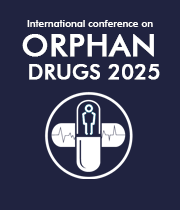Health Policies and Services Organization
Around 400 million people are affected by rare diseases around the world. Around 80% of these disorders have a hereditary basis, and their severity can range from trivial to fatal. Numerous rare diseases have a substantial impact on health beginning at birth or early childhood due to their genetic or congenital origins, and they pose a huge challenge for patients, carers, physicians, healthcare providers, and society in general. Rare diseases have a substantial financial impact. Apart from the difficulties of effectively diagnosing rare diseases and analysing the impact of these diseases on patients and caregivers, there is also the problem of reaching a patient group that is small in number and geographically dispersed. The usual public health approach, which is developed for diseases that are frequent or cluster, may not be appropriate for rare diseases. As a result, government action is a regularly employed strategy to promote public health measures targeted at reducing the burden of rare diseases. The Rare Diseases Policy attempts to reduce the high cost of rare disease treatment by focusing more on local research. The cost of treating rare diseases will be reduced by a greater focus on research and development and local production of medications. The strategy also calls for the establishment of a national registry of rare diseases based in hospitals, so that appropriate data is accessible for defining rare diseases and conducting research and development on rare diseases in the country.

Sergey Suchkov
The Russian University of Medicine & Russian Academy of Natural Sciences, Russian Federation
Vladlen Slepak
University of Miami, United States
Harsha Rajasimha
Jeeva Clinical Trials, Inc, United States
Vladlen Slepak
University of Miami, United States
Harsha Rajasimha
Jeeva Clinical Trials, Inc, United States
Sergey Suchkov
The Russian University of Medicine & Russian Academy of Natural Sciences, Russian Federation


Title : Emerging solutions for inclusive orphan drug clinical trials management
Harsha Rajasimha, Jeeva Clinical Trials, Inc, United States
Title : Ectopically expressed olfactory receptors as an untapped family of drug targets. Discovery of agonists and antagonists of OR51E1, an understudied G protein-coupled receptor
Vladlen Slepak, University of Miami, United States
Title : Personalized and Precision Medicine (PPM) as a unique healthcare model to secure the human healthcare and biosafety among childhood
Sergey Suchkov, The Russian University of Medicine & Russian Academy of Natural Sciences, Russian Federation
Title : Orphan and rare disease emerging as a global public health priority through the view of personalized and precision medicine: How to use the latter to revolutionize pediatric services
Sergey Suchkov, The Russian University of Medicine & Russian Academy of Natural Sciences, Russian Federation
Title : Personalized and Precision Medicine (PPM) though the view of reproductive healthcare, pediatric services and natural family planning: an option for clinicians and caregivers realize the potential of genomics-informed care to secure the individualized human biosafety
Sergey Suchkov, The Russian University of Medicine & Russian Academy of Natural Sciences, Russian Federation
Title : Democratizing ASO drug discovery at La Jolla Labs
Melissa Keenan, La Jolla Labs, United States